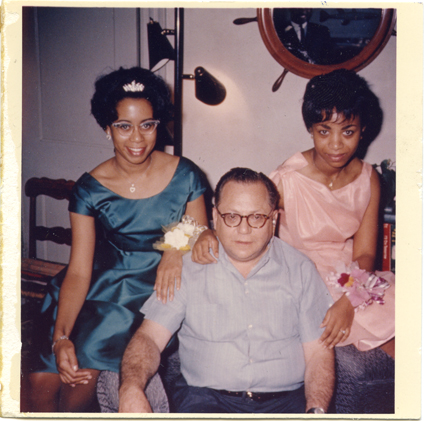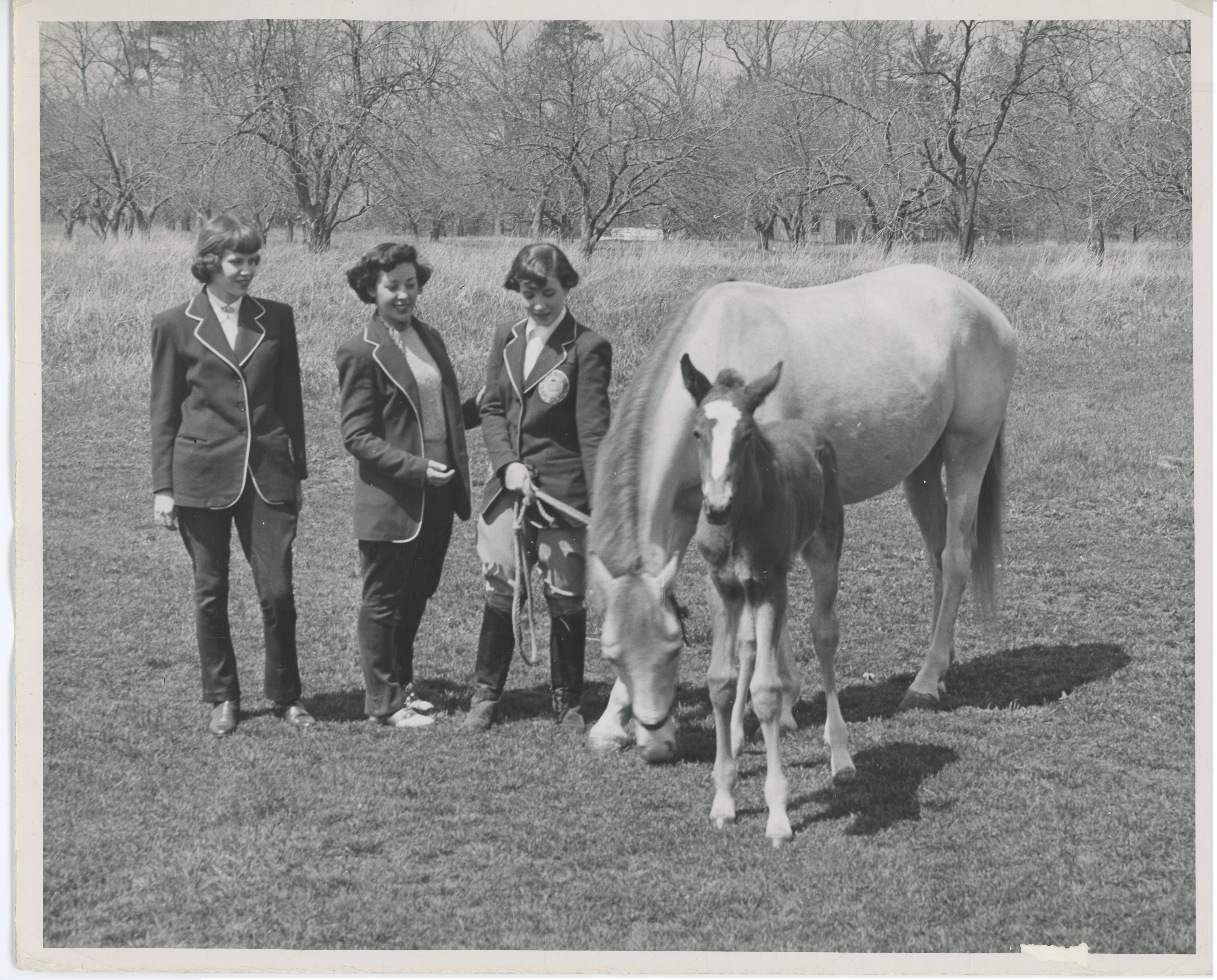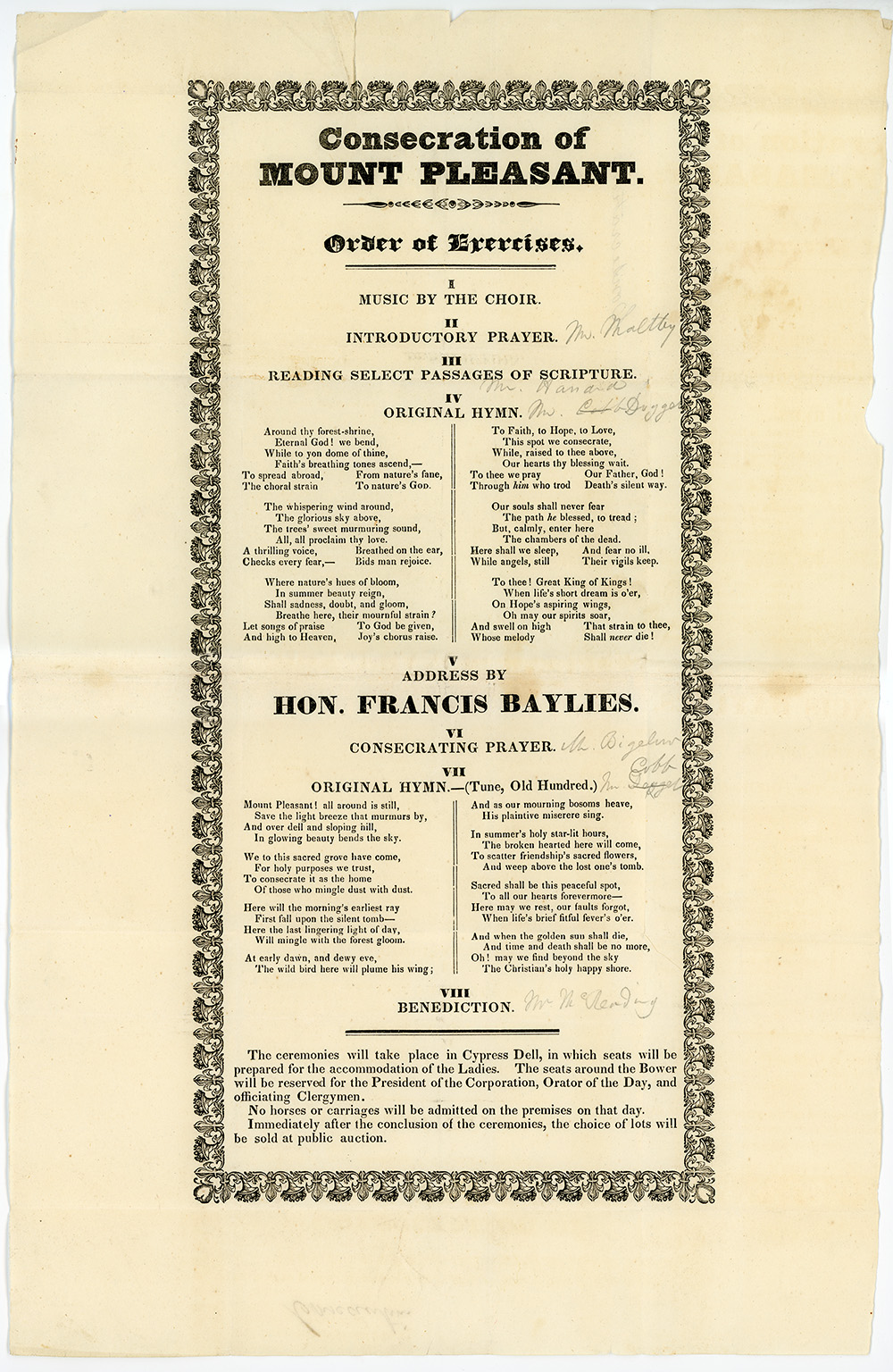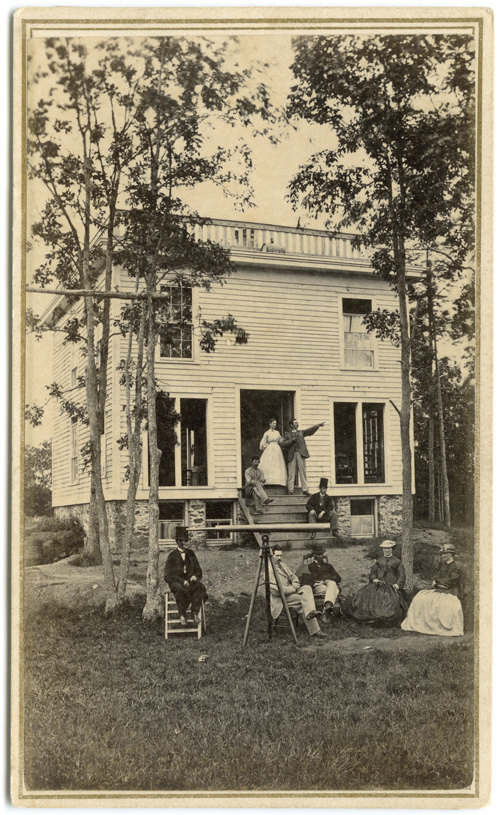Holland Montague Diary
A lifelong diarist, Granby farmer Holland Montague wrote chiefly about life on the farm where he made a comfortable living supplying produce to surrounding towns. While most of his entries are bland accounts of the weather and agricultural duties, Montague occasionally offers a glimpse into his personal life, especially on the diary’s endpapers, where he records medicinal remedies for humans and livestock, purchases made and payments received, as well as a valuation of his property in 1872. Very few references are made to political events of the day, including the Civil War, although he does note on April 16, 1865 that President Lincoln is dead.
Laid into the volume is a manuscript copy of the 1826 document listing depositions to be taken from individuals in the petition of the town of Granby against the town of South Hadley relating to a dispute over the boundary line between the two towns.





